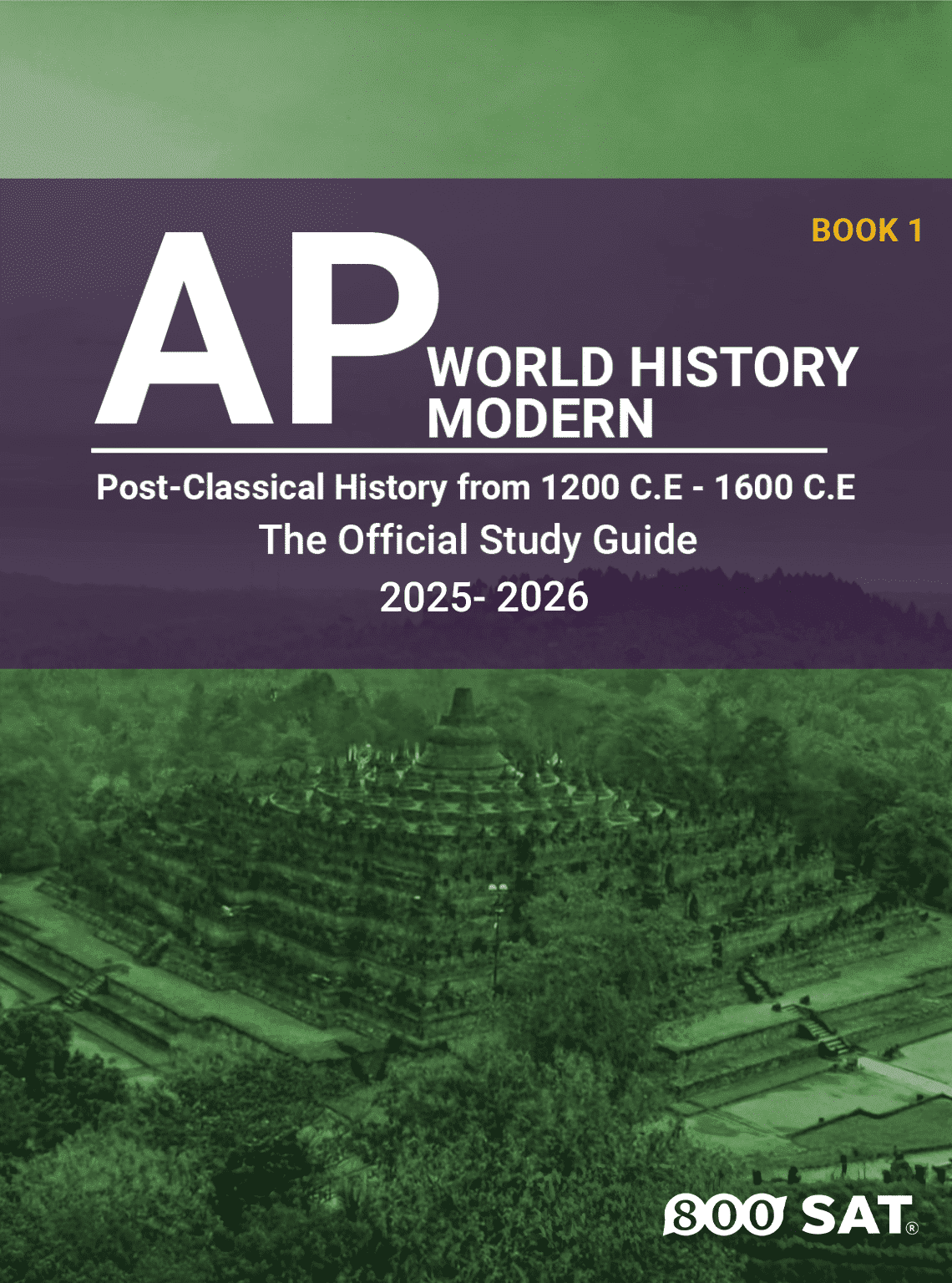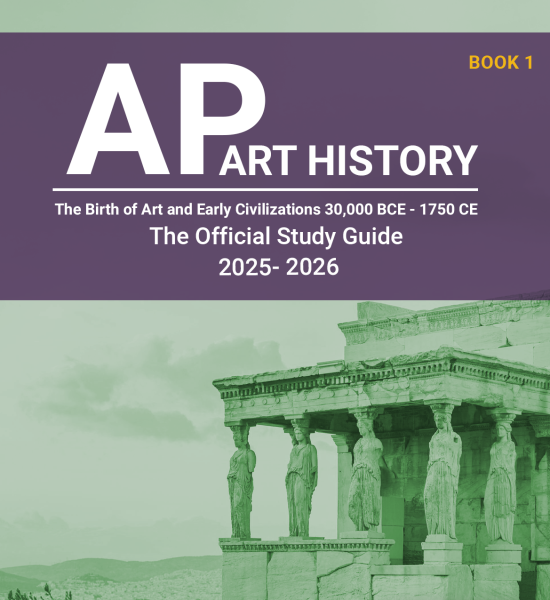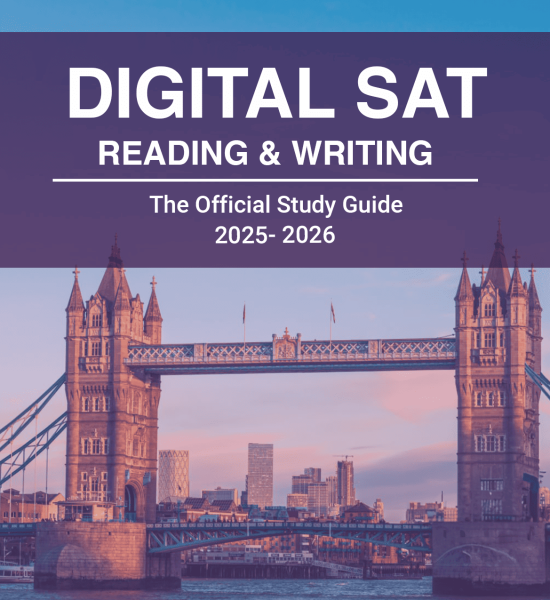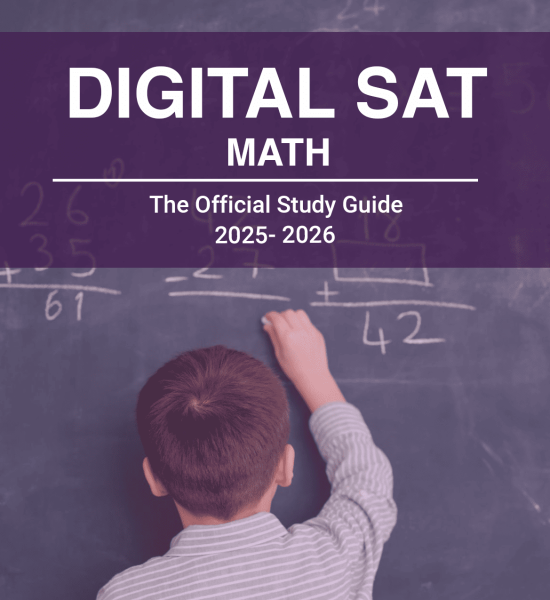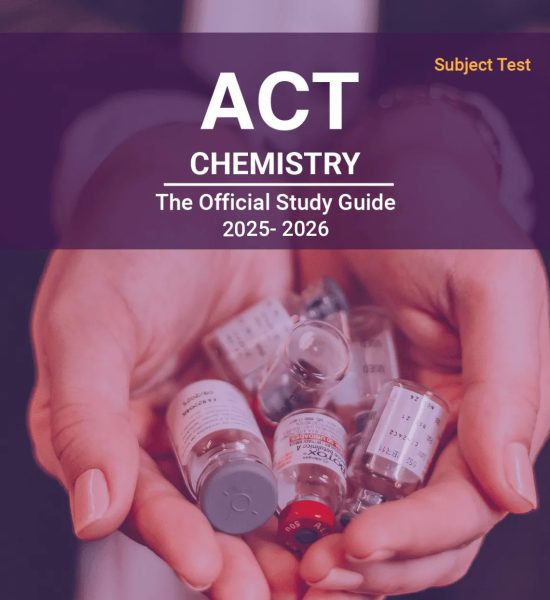AP World History Modern Book 1: Post-Classical History 1200 C.E – 1600 C.E
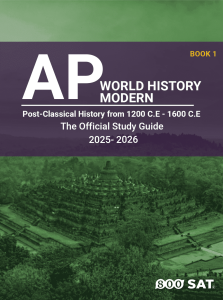 The AP World History Modern Green Module (Part 1) covers the Post-Classical period from 1200 C.E. to 1600 C.E., a time of significant change and development across the world. This module helps students understand the key events and trends that shaped different societies during this period.
The AP World History Modern Green Module (Part 1) covers the Post-Classical period from 1200 C.E. to 1600 C.E., a time of significant change and development across the world. This module helps students understand the key events and trends that shaped different societies during this period.
First, the module looks at important political and economic changes. It examines the rise and fall of powerful empires, like the Mongol Empire, which became the largest land empire in history. This empire connected many different regions, allowing for an exchange of cultures, goods, and ideas. Trade routes like the Silk Road and Indian Ocean routes grew, helping cities grow and new social and political structures to emerge.
The module also focuses on cultural and intellectual developments. It explores the spread of major religions such as Islam, Buddhism, and Christianity, and how they influenced societies. It highlights important intellectual contributions, like scientific and mathematical advancements in the Islamic world, the Renaissance in Europe, and philosophical and artistic achievements in East Asia. These exchanges and movements played a big role in shaping the modern world.
Environmental and technological changes are another key topic. The module examines agricultural innovations that supported population growth and urbanization, as well as technological advancements that helped with exploration and trade. It also discusses environmental challenges, like deforestation and soil depletion, and how societies adapted to these issues.
Social structures and gender roles in post-classical societies are also covered. The module looks at the hierarchical nature of these societies, including the roles of elites, merchants, and peasants, and how social mobility was influenced by trade and conquest. It also considers the status and roles of women, showing how gender dynamics varied across different cultures and regions.
Throughout the module, students engage with primary sources and historical evidence, developing critical thinking and analytical skills. The module emphasizes the interconnectedness of different regions and the importance of understanding history from a global perspective. By the end of this module, students will have a better understanding of the post-classical period and its impact on the modern world.
Course Features
- Lectures 10
- Quiz 1
- Duration 50 hours
- Skill level Intermediate
- Language English
- Students 137
- Assessments Yes
- 1 Section
- 10 Lessons
- 52 Weeks
- Post-Classical History 1200 C.E - 1600 C.E11
- 1.1Post-classical East Asia: China, Korea, Vietnam, and Japan
- 1.2Post-classical in South Asia: India
- 1.3Medieval Ages: Feudal Europe & Japan
- 1.4The Turks & The Mongols
- 1.5African Societies
- 1.6Western Europe High Middle Ages
- 1.7The American Societies
- 1.8Death & Rebirth
- 1.9Age of Exploration
- 1.10Summary
- 1.11Assessment20 Minutes20 Questions


